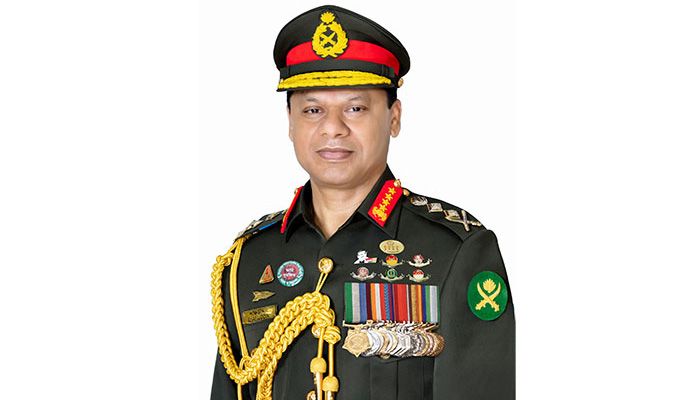Chief of Army Staff General SM Shafiuddin Ahmed yesterday said Bangladesh military does engage with its Myanmar counterpart but with considerable apprehension.
“Many Myanmar military leaders have international sanctions [against them], so, there is a risk of putting ourselves into trouble when we do that [further engagement].”
He made the statement as the chief guest of seminar titled “Defence Diplomacy: Strategy for Bangladesh”, organised by the Bangladesh Institute of International and Strategic Studies (BIISS) at its auditorium in the capital.
“We are friends to all, but to make one friend happy, we can’t antagonise others. It’s a dynamic we need to take into consideration.
“Military personnel don’t only learn how to fight in a war, they also learn to avoid war in the interest of their nation.
At the same time, they never forget their main role — protecting the sovereignty of their country.”
He said a country’s intention can change overnight, but not its capabilities.
“One can be a friend today, but what happens if they aren’t tomorrow? We should be capable enough to defend our national interests and our motherland. But the main foreign policy dictum sets every tone for us.”
Regarding cooperation between the military and the ministries concerned, he proposed forming a national body to enhance coordination and collaboration among the defence forces and relevant ministries for the advancement of national interests in a geopolitically changing environment.
“We start many engagements but can’t complete those as they don’t remain in the military domain anymore … Also, there are questions regarding who should take the lead.”
He said Bangladesh has earned a good reputation with many countries through its UN peacekeeping troops and this can eventually lead to relations in other areas, including trade.
“But those opportunities needed to be followed up by relevant ministries. That did not happen… Our strategy is based on the national strategy and interests. It can’t be achieved in isolation. This is where the question of ‘who will lead’ arises.
“There should be a body to ensure a concerted effort so that we do not lose what we achieved. The BIISS can suggest the modality. With continuous efforts, we can find an effective way to work together.”
All government organisations work for national interests and it is important to have a conducive environment to work together to best utilise the opportunities, he opined.
“It’s impossible to achieve [any of these] alone. How to collaborate is the challenge. We’ll be able to find a solution while discussing ways to improve.”
He said it is important to allocate resources and budgets to enhance the capability of the armed forces for their influence and cooperation.
Prof ASM Ali Ashraf, of Dhaka University’s international relations department, said Bangladesh has been performing quite well in terms of defence diplomacy.
He suggested that Bangladesh strike a balance between US and China, keep up the excellence at the UN peacekeeping missions and maintain diversity in its economy.
BIISS Chairman AFM Gousal Azam Sarker moderated the seminar, which was also addressed by Bangladesh Army Chief of General Staff Waker-uz-Zaman, Air Vice Marshal (Retd) Mahmud Hussain, Maj Gen (Retd) Main Ullah Chowdhury, BIISS Director General Abu Bakar Siddque Khan and its Research Fellow ASM Tarek Hassan Semul.







